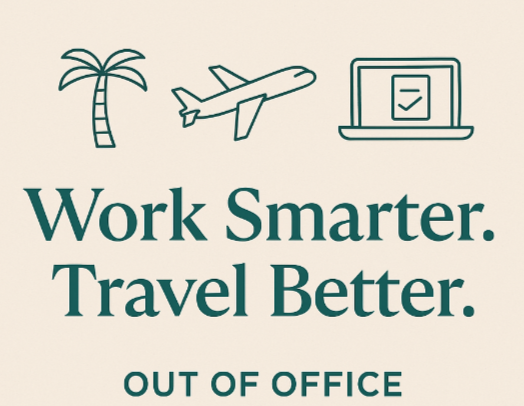When Does Travel Become a Write-Off? (And When It Doesn’t)
The Allure of the “Business Trip”
Entrepreneurs love to mix business and pleasure — and for good reason. The right trip can spark creativity, open new opportunities, and even qualify as a business expense. But here’s the truth: not every flight, cruise, or conference weekend counts as a write-off.
Understanding when travel is deductible (and when it’s not) can save you stress, audits, and missed savings.
When Travel Is a Legitimate Business Write-Off
To qualify as a deduction, your trip must have a clear, business-driven purpose. The IRS looks at intent, documentation, and timing.
Here are examples of what does qualify:
1. Client Meetings or Consultations
If you travel to meet with clients, partners, or investors, those expenses are generally deductible — flights, hotels, meals (50%), and transportation.
💡 Tip: Keep your itinerary, meeting notes, and receipts organized.
2. Conferences or Educational Events
Attending a professional event directly related to your business counts. That includes ticket fees, travel costs, and lodging for the duration of the conference.
If you extend your stay, document which days were business vs. personal.
3. Scouting New Business Opportunities
Exploring a new city to open a branch, test a market, or meet potential collaborators? That’s deductible, as long as your primary intent is business growth.
4. Workations & CEO Getaways (If Structured Right)
If you schedule working sessions, strategy meetings, or client calls during your trip — and can document them — you can justify portions of your travel as business-related.
👉 The key: structure the trip around work, not leisure.
When Travel Is Not a Write-Off
Just because you work while traveling doesn’t mean it’s deductible.
If the main reason for the trip is personal — vacation, family visit, or leisure — it’s not a business expense.
❌ Common Non-Deductible Examples:
Traveling to recharge without business intent
Adding a few work hours to a personal vacation
Visiting family and casually talking about business
Taking your spouse or friend (unless they work in the business and have a valid reason to attend)
💡 Rule of Thumb: If you wouldn’t have taken the trip without the business purpose, it’s not deductible.
How to Document Business Travel Correctly
The IRS loves documentation. To protect your deductions:
✅ Keep flight, hotel, and meal receipts
✅ Maintain a daily log (even a Google Doc or calendar works)
✅ Save evidence of meetings, bookings, and communications
✅ Separate personal and business days clearly
If at least 50% of your trip is business, you can often deduct the travel costs. But if it’s mostly personal, the whole trip becomes personal — even if you sneak in a client call or two.
The CEO Perspective: Intent + Structure = Savings
The smartest entrepreneurs plan travel with intention. Whether you’re cruising, attending a mastermind, or working remotely for a week, you can design it to serve your business — strategically and tax-efficiently.
That’s what the OOO lifestyle is all about:
Freedom, clarity, and smart systems that make life (and taxes) easier.
Bottom Line
Travel can absolutely be a business write-off — but only if it’s structured, documented, and aligned with your business goals. The more intentional your travel, the more legitimate (and valuable) your deductions become.
So before you pack your bag, ask yourself:
“Is this trip for my growth — or just my getaway?”
With the right planning, it can be both.




